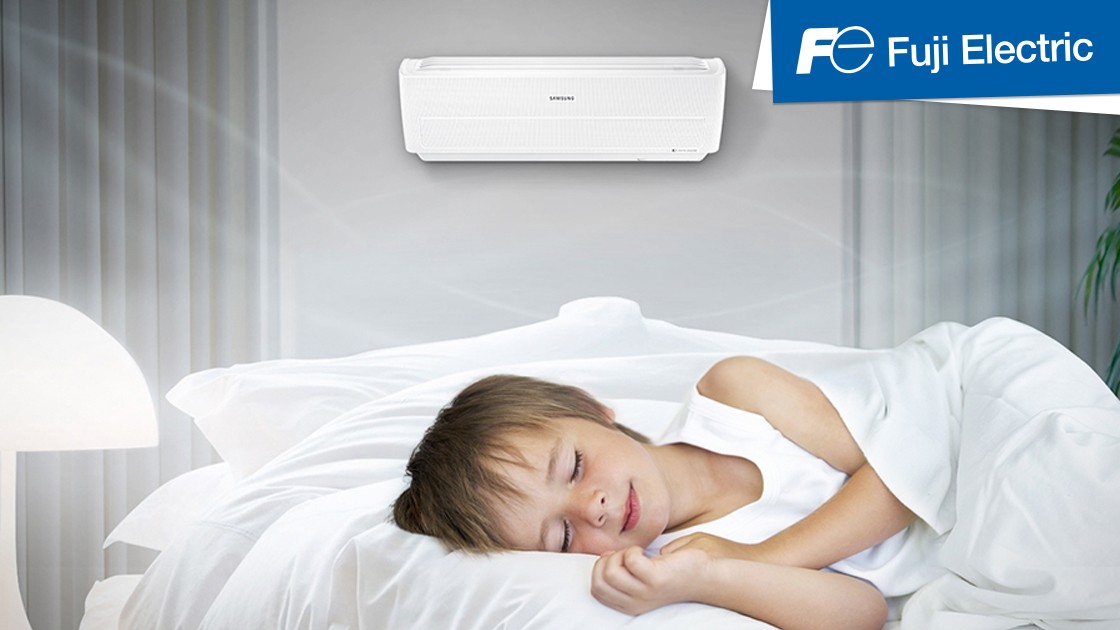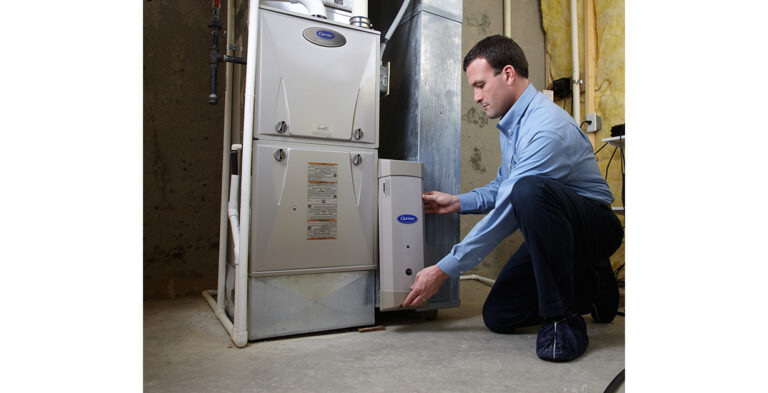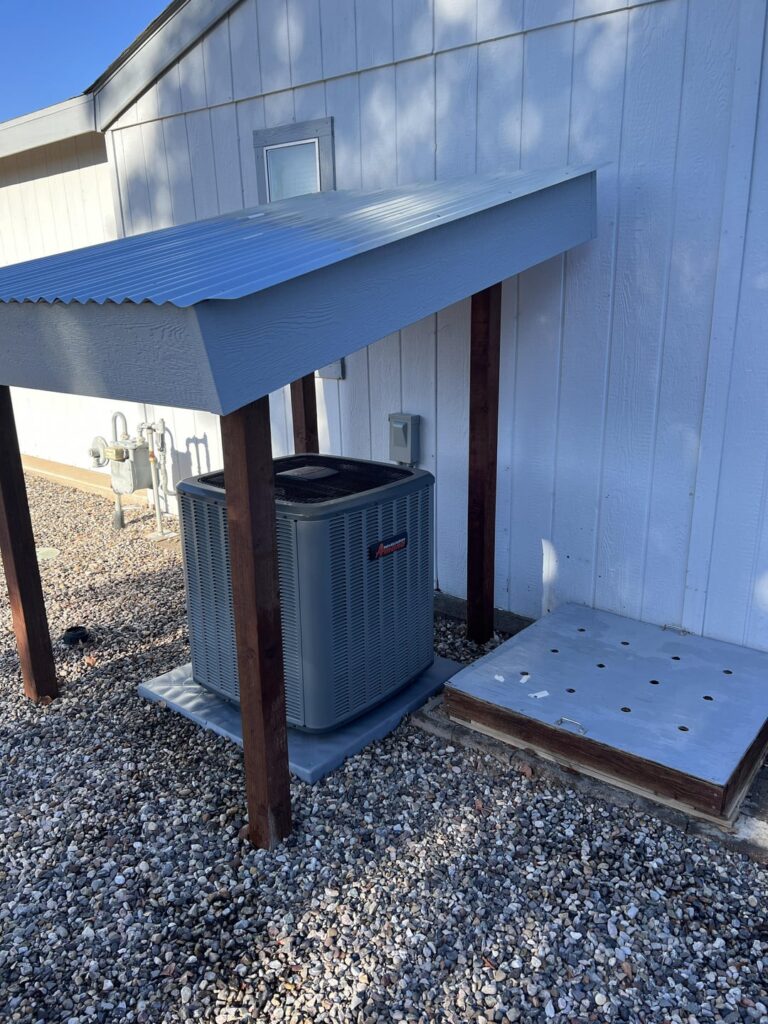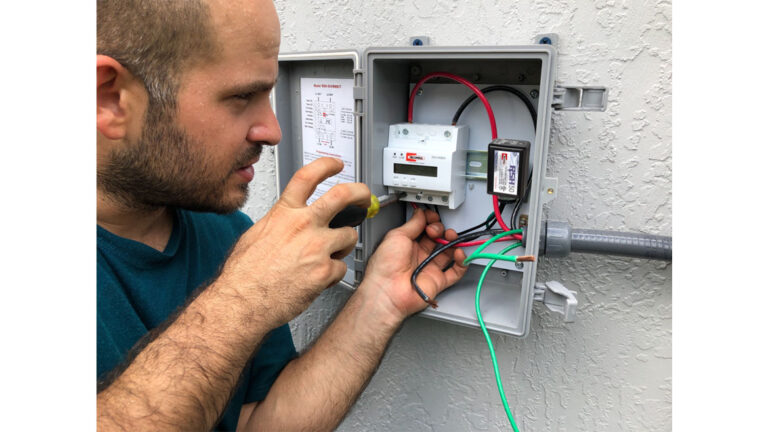Is It Bad To Sleep With Air Conditioners On: Health Risks Explained
It’s generally not bad to sleep with air conditioners on. Proper usage ensures comfort and a good night’s sleep.
Sleeping with air conditioners on can provide a comfortable environment, especially during hot and humid nights. Air conditioning helps maintain a consistent temperature, reducing the risk of overheating and night sweats. This can improve sleep quality and overall well-being. Ensure the air conditioner is set to a moderate temperature to avoid excessive cold, which can lead to respiratory issues.
Regular maintenance of the unit prevents the spread of dust and allergens, promoting a healthier sleep environment. Proper hydration and using a humidifier can counteract the drying effects of air conditioning.

Credit: woodsaccu-air.com
Impact On Respiratory Health
Sleeping with air conditioners on can have significant effects on your respiratory health. Understanding these impacts is crucial for maintaining good health. Let’s explore the effects on your respiratory system.
Dry Air Effects
Air conditioners can dry out the air in your room. This dry air can lead to dry throat and nasal passages. Your body needs a certain level of humidity to function properly. When the air is too dry, your mucous membranes become less effective. They can’t trap dust and allergens as well. This can lead to irritation and coughing at night. For many, this makes sleeping difficult.
Using a humidifier can help balance the moisture level. It can make breathing easier and more comfortable.
Aggravation Of Allergies
Air conditioners can also aggravate allergies. They circulate air and can spread dust, pollen, and mold spores. These allergens can trigger asthma and allergy symptoms. You might experience sneezing, runny nose, and itchy eyes.
Regularly cleaning your air conditioner filters is crucial. Clean filters reduce the spread of allergens in the air. Also, keeping your room clean can help minimize allergy triggers.
Skin And Eye Irritation
Using air conditioners at night can cause skin and eye irritation. The cold air can dry out your skin and eyes, making you uncomfortable. This section will cover these issues in detail.
Dry Skin Issues
The cold, dry air from air conditioners can pull moisture from your skin. This can lead to dry skin, which can be itchy and flaky. You may notice that your skin feels tight or looks dull. People with sensitive skin might experience more severe symptoms.
To combat dry skin, you can:
- Use a humidifier in your bedroom
- Apply moisturizing lotion before bed
- Drink plenty of water throughout the day
Eye Discomfort
Air conditioners can also cause eye discomfort. The dry air can irritate your eyes, making them red and itchy. You may feel like you have something in your eye, or your eyes might water more than usual.
To reduce eye irritation, you can:
- Use eye drops to keep your eyes moist
- Avoid sleeping directly under the air conditioner
- Keep the air conditioner at a moderate temperature
| Problem | Solution |
|---|---|
| Dry Skin | Use moisturizer, humidifier, drink water |
| Eye Irritation | Use eye drops, avoid direct air, moderate temperature |
Impact On Sleep Quality
Sleeping with air conditioners on can impact your sleep quality. This section explores how it affects sleep patterns and noise disturbances.
Disrupted Sleep Patterns
Air conditioners may disrupt natural sleep cycles. The cold air can make you wake up feeling stiff. Your body temperature drops during sleep. Extreme cold can cause frequent wake-ups.
Also, sudden changes in temperature can interrupt deep sleep. Maintaining a consistent temperature is crucial. Use a thermostat to keep the temperature steady.
Noise Disturbances
Air conditioners can be noisy. The hum or rattle can disturb light sleepers. Noise can cause micro-awakenings, which you may not notice. These interruptions affect the quality of sleep.
Look for quiet air conditioners. Models with a low decibel rating are better. Place the unit away from the bed to reduce noise.
| Factors | Impact on Sleep |
|---|---|
| Temperature Fluctuations | Interrupts deep sleep |
| Noise Levels | Causes micro-awakenings |
| Air Quality | May cause dryness |
Keep these factors in mind to ensure better sleep quality with an air conditioner on. Use earplugs if noise is a big issue.
Dehydration Risks
Sleeping with air conditioners on can lead to dehydration. Air conditioners remove moisture from the air. This can reduce hydration levels in your body. Understanding these risks can help you stay healthy.
Reduced Hydration Levels
Air conditioners work by cooling the air and removing humidity. This process can dry out the air in your room. A dry environment can cause your skin and mucous membranes to lose moisture. When your body loses moisture, you become dehydrated.
Dehydration can lead to various health issues. These include dry skin, chapped lips, and an irritated throat. Long-term exposure to dry air can worsen these symptoms. It is important to stay hydrated when using an air conditioner.
Signs Of Dehydration
It is crucial to recognize the signs of dehydration. Here are some common symptoms:
- Dry mouth and throat
- Cracked lips
- Itchy or dry skin
- Increased thirst
- Dark yellow urine
- Feeling tired or dizzy
If you notice these signs, drink more water. Keeping a water bottle near your bed can help. Avoid caffeinated drinks as they can worsen dehydration.
Muscle And Joint Pain
Many people wonder, is it bad to sleep with air conditioners on? One concern is how it affects muscle and joint pain. Let’s dive into how cold air can impact your body and why you might feel stiffness and cramps after a night in a cooled room.
Cold Air Effects
Cold air can cause muscles to tighten. When muscles tighten, they become less flexible. This lack of flexibility can lead to pain. The joints can also be affected. Cold air can reduce blood flow to the muscles and joints. This can make the joints stiff and sore.
Stiffness And Cramps
Sleeping with the air conditioner on can result in stiffness. Cold air can cause your muscles to contract. This can lead to muscle cramps. Cramps can be very painful and can wake you up at night. Stiffness in the morning can also be a sign of sleeping in a cold room.
To help you understand better, here’s a table summarizing the effects:
| Cold Air Effects | Stiffness and Cramps |
|---|---|
| Muscles tighten | Muscles contract |
| Less flexibility | Muscle cramps |
| Reduced blood flow | Stiff joints |
Sleeping with air conditioners on can impact your muscles and joints. Cold air can tighten muscles and reduce blood flow. This can lead to stiffness and cramps. Try to keep your room at a comfortable temperature to avoid these issues.

Credit: www.daikin-ce.com
Potential For Illness
Sleeping with the air conditioner on can be a double-edged sword. While it provides comfort, it can also lead to potential health issues. Understanding these risks can help you make informed decisions.
Increased Cold Susceptibility
Air conditioners can make the air dry. Dry air can irritate your respiratory system. This irritation can make you more susceptible to colds. Cold air can also dry out your nasal passages. Dry nasal passages can lead to infections and colds.
Weakened Immune System
Exposure to cold air for long periods can weaken your immune system. A weakened immune system can make it harder to fight off infections. Sleeping in a cold environment can also lower your body’s core temperature. A lower body temperature can slow down your immune response.
| Health Concern | Cause |
|---|---|
| Increased Cold Susceptibility | Dry air and cold temperatures |
| Weakened Immune System | Prolonged exposure to cold air |
- Use a humidifier to add moisture to the air.
- Keep the air conditioner at a moderate temperature.
- Cover yourself with blankets to stay warm.
Long-term Health Concerns
Sleeping with the air conditioner on might bring relief from the heat. But it also poses several long-term health risks. These risks can affect your quality of life over time. Below, we discuss some of these concerns in detail.
Chronic Respiratory Issues
Continuous exposure to air-conditioned environments can lead to chronic respiratory issues. The cool, dry air often circulates dust and allergens. This can trigger asthma and other respiratory conditions. Your nasal passages may dry out, causing discomfort and nasal congestion. Over time, this can lead to chronic respiratory diseases.
Studies have shown that long-term use of air conditioners can also worsen pre-existing lung conditions. If you have allergies or asthma, sleeping with the air conditioner on can make your symptoms worse. It’s crucial to maintain a clean AC unit to minimize these risks.
Persistent Skin Problems
Air conditioners remove moisture from the air, leading to persistent skin problems. Dry air can cause your skin to lose its natural moisture. This can result in dry, flaky, and irritated skin. People with sensitive skin may experience worse symptoms.
Long-term exposure to dry air can also worsen conditions like eczema. Your skin may become more prone to cracking and infections. Keeping a humidifier in the room can help maintain skin moisture. Regular skin care routines become essential to combat these effects.
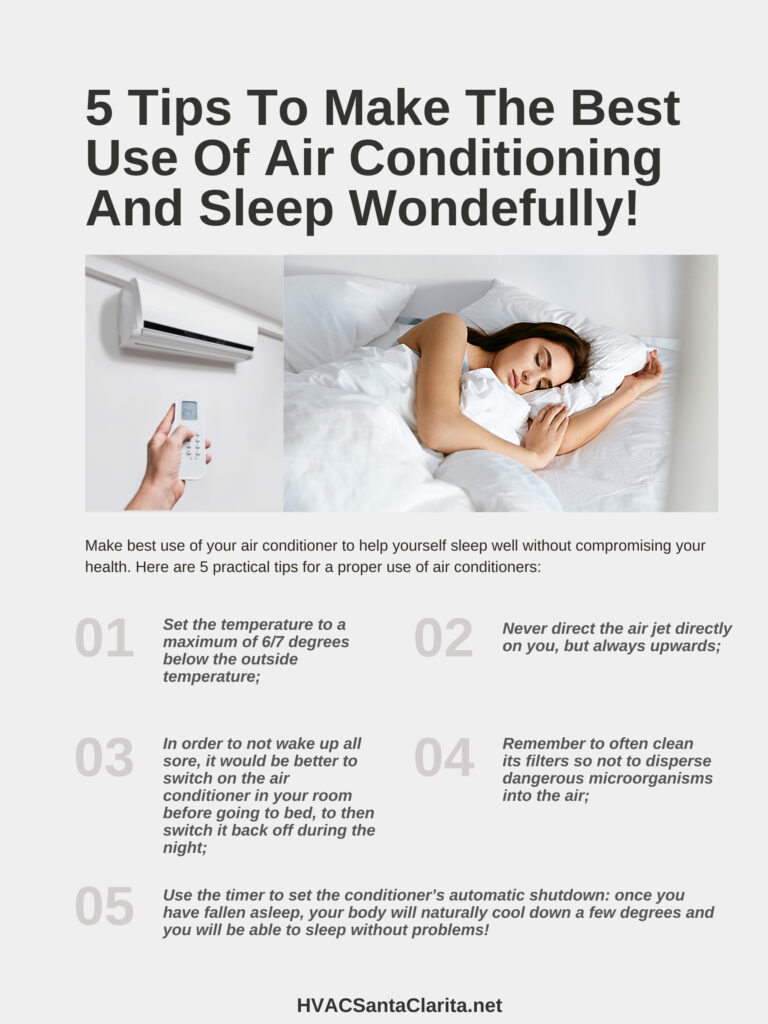
Credit: hvacsantaclarita.net
Tips For Safe Use
Sleeping with air conditioners on can be comfortable. But, it is important to use them safely. Follow these tips for a good night’s sleep.
Optimal Temperature Settings
Setting the right temperature is key. Experts recommend keeping your room between 60°F to 67°F (15.5°C to 19.4°C). This range helps maintain a balanced environment. Avoid extreme temperatures. They can cause discomfort and disrupt sleep. Use a programmable thermostat for consistent settings.
Maintenance And Cleaning
Regular maintenance ensures your air conditioner works well. Clean or replace filters every one to two months. This improves air quality and efficiency. Follow these steps for cleaning:
- Turn off the unit and unplug it.
- Remove the filter and wash it with warm water.
- Let the filter dry completely before reinstalling.
- Wipe down the exterior with a damp cloth.
Consider professional servicing once a year. This helps keep your unit in top shape.
Frequently Asked Questions
Is It Safe To Leave Air Conditioner On All Night?
Yes, it’s generally safe to leave the air conditioner on all night. Ensure proper maintenance and set a comfortable temperature.
Is Sleeping In Ac Bad For Health?
Sleeping in AC is generally safe but can cause dry skin and respiratory issues. Use a humidifier to balance humidity.
Is It Bad To Sleep With Ac Blowing On You?
Yes, it can be bad. Cold air from AC may cause respiratory issues, dry skin, and muscle stiffness.
Conclusion
Sleeping with the air conditioner on can offer comfort and better sleep quality. But, it’s important to use it wisely. Maintain moderate temperatures, keep the unit clean, and ensure proper ventilation. By doing so, you can enjoy the benefits without compromising your health.
Always prioritize your comfort and well-being.

